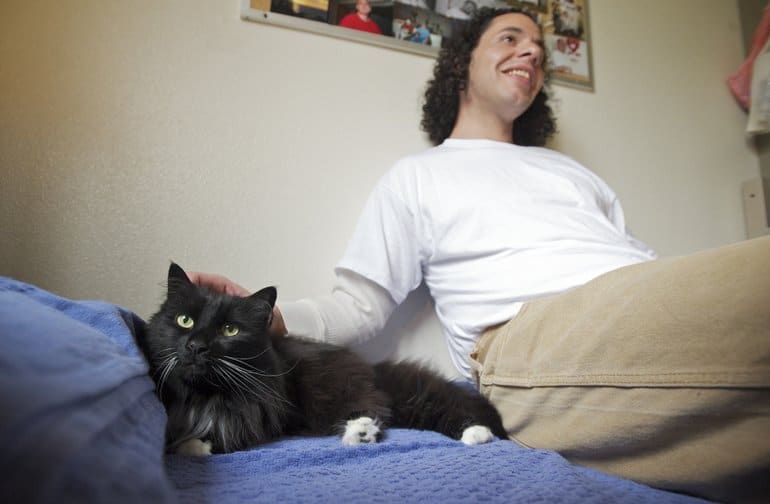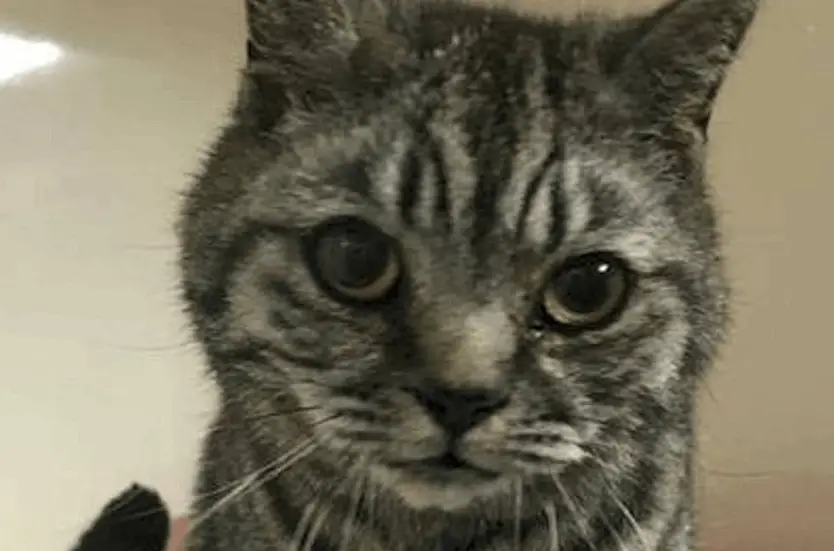Essential oils are popular as a natural way to relieve stress, promote relaxation, and improve overall wellness. However, before you start diffusing these oils around your feline friend, it’s important to understand that not all essential oils are safe for cats. In fact, some essential oils can be toxic to cats if they’re not used properly.

Remember, just because something is natural does not mean it is safe. Arsenic, opium, and mercury are natural – but you don’t want these things lying around your home!
The Benefits of Essential Oils for Cats
There are many benefits of using essential oils with cats. These oils can help to relieve stress, promote relaxation, ease anxiety, and even boost immunity. When used properly, essential oils can be a safe and effective way to improve your cat’s health and well-being.
However, it’s important to understand that not all essential oils are created equal. Some essential oils—such as pennyroyal, cinnamon bark, citrus, eucalyptus, tea tree oil, and wintergreen—are toxic to cats and can cause serious health problems if they’re ingested or inhaled. For this reason, it’s important to do your research and only diffuse or use essential oils that are known to be safe for cats. Some of the most popular safe essential oils for cats include lavender, chamomile, and lemongrass.
How to Use Essential Oils Safely with Cats
If you’re going to use essential oils with your cat, it’s important to do so safely. First, always consult with your veterinarian before using any new products with your cat—oils included. Once you’ve gotten the green light from your vet, start by diffusing a small amount of oil in a well-ventilated room. Keep an eye on your cat while the oil is diffusing and watch for any signs of irritation or distress. If your cat seems uncomfortable or starts showing signs of toxicity (diarrhea, vomiting, tremors, etc.), stop diffusing the oil immediately and call your veterinarian for guidance.
A Note of Caution:
Cats are incredibly sensitive to essential oils (EOs) because they are unable to efficiently process phenols. Since cats are obligate carnivores, they lack an enzyme called glucuronyltransferase that helps to process and eliminate the various compounds of these oils. That’s why it’s so important that you use only the highest quality of EOs possible and that you give your animals plenty of options when you diffuse the oils or use them around your home.
Oils To Avoid If You Have Cats
As a general rule, avoid tree oils (Cedar, Pine, Cypress, Juniper, etc) since they contain high levels of phenols and eugenols (which your cats cannot effectively process).
Also, avoid any citrus oils (Lemon, Orange, Tangerine, Mandarin, Grapefruit, Lime, Bergamot) which contain high levels of d-limonene (which your cat cannot process).
Specific oils that should NEVER be used with animals (especially cats) include: Anise, Basil, Birch, Cinnamon, Clove Leaf/Bud, Fennel, Garlic, Horseradish, Juniper, Melaleuca, Oregano, Peppermint, Thyme, Wintergreen, Yarrow, all citrus and tree-based oils (like orange, lemon, grapefruit, lime, cedar, pine, and more) – to name only a few.
Essential Oils That Can Be Safely Used With Cats
EOs that are generally identified as “safe” to use occasionally and only in highly dilute forms (at least 50% dilution) include Rosemary or Lemongrass for skin conditions and flea repellant, Lavender for calming, Catnip for increased activity and playfulness in cats (it’s actually calming for humans!), Ginger for upset tummies, and Valerian root to promote restful sleep.
Choosing a Safe Essential Oil:
Packaging should include the common name (e.g., Lavender), the Latin binomial (e.g., Lavandula angustifolia), the country of origin, the method of distillation, the part of the plant used, lot number, amount of oil in bottle, contact information of the company, how the plant was grown, and the words “100% pure essential oil” or the ingredients, if in a carrier or blend.
Price often dictates the quality (but not always), so be very aware of testing that is done on each batch and where the company’s reputation for quality. Some brands we know and recommend are doTerra and Young Living. Realize that essential oils are sold in largely an unregulated industry. So, it’s important to do your research.
Conclusion:
Essential oils can be a safe and effective way to improve your cat’s health and well-being—but only when used properly. Be sure to consult with your veterinarian before using any oils around your cat and always diffuse in a well-ventilated area. If you notice any signs of irritation or distress, stop diffusing the oil immediately and call your vet for guidance.




